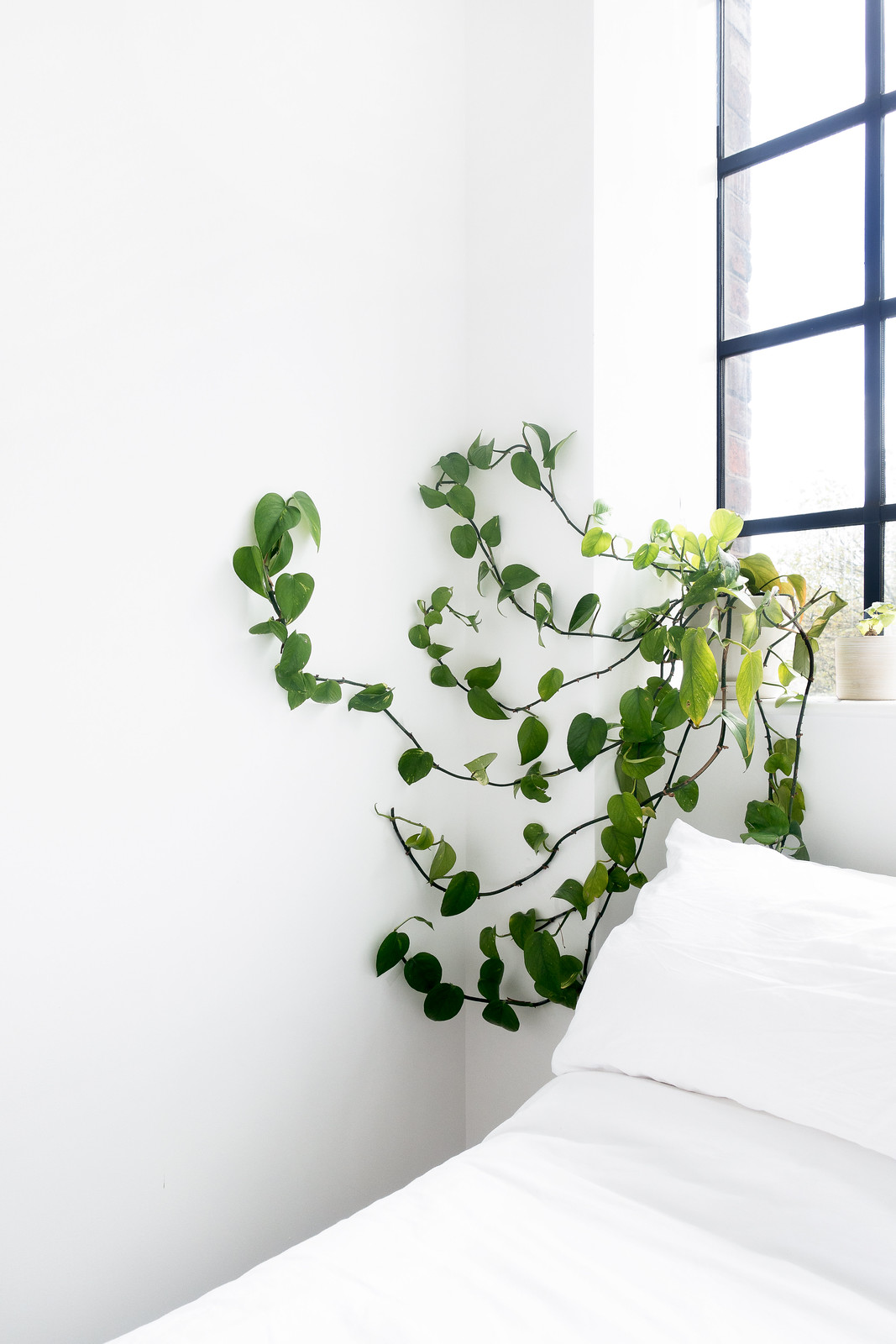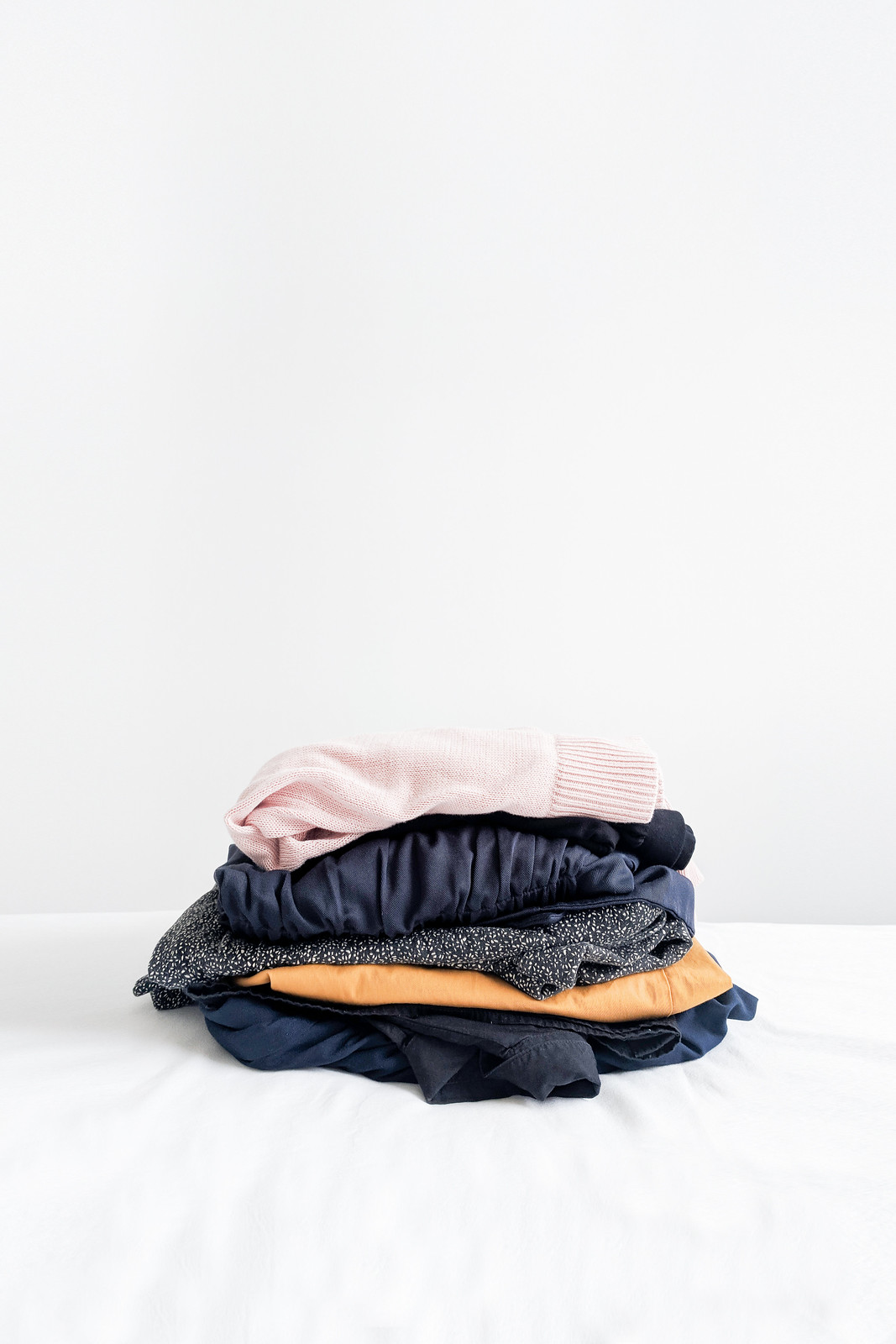
When I first started practicing a minimalist way of living and later incorporated zero waste habits into my life, I believed the two were very similar. Over time I've realised they can often be contradictory. Minimalism and zero waste offer slightly different answers to the question of how we want to live in a world that is full of stuff, and they don't always agree.
Minimalists want to get rid of things; zero wasters want to find a use for it. If you try to follow the principles of both, you often find yourself tugged in two different directions: "if I keep this thing it'll take up space but if I get rid of this thing it'll go to waste." With minimalism, if something doesn't 'spark joy' you're encouraged to get rid of it, quickly and without sentimentality. Zero waste, on the other hand, urges you to hang onto things so you can find a new use or purpose for them.
A tower of empty glass jars sat in your pantry waiting to be made use of might not exactly be minimalist but it is less wasteful and more thoughtful than throwing them out. Decluttering, owning less, isn't any more virtuous than keeping hold of potentially useful items. There's nothing wrong with being sentimental about possessions, wanting a library at home, or a well-stocked kitchen, if it adds value to your life and prevents things from going to waste.
And that's the problem I have with minimalism. It encourages us to get rid of things for the sake of getting rid of them under the guise of 'making space' in our lives. Nobody really cares how many clothes you have, whether you read all the books on your shelves, if you need quite so many knives and forks. The only person counting is you (and other obsessive minimalists). You're the same person after you've whittled down your possessions to barely anything at all – unless you change your mindset and your habits.
When we declutter our belongings, they have to go somewhere. Donating often passes the problem onto someone else and lets us off the hook for our bad consumer choices. We don't feel quite so bad when we believe "someone else will use them" and it's easy to not feel any responsibility for the environmental impact because we don't see or experience the effects. We leave our donations at the door and forget about them. Strict minimalists would have us believe we can only live a simple life if we're willing to give up everything we don't need to survive. But I don't want to survive, I want to thrive; life is undoubtedly more comfortable with nice things in it and more eco-friendly for not sending a constant stream of stuff to landfill.

The trap of zero waste, however, is hoarding possibly-useful things for the sake of avoiding waste. Yet unused things, regardless of how much potential they might have, if they're never put to good use are just trash you haven't thrown out yet. I'm not suggesting you hang onto expired food or half used beauty products; or you should feel guilty about decluttering things you really won't use. Just don't be too quick to rush these things out of your home because they don't 'spark joy' right this minute, and don't hang onto things you're never going to use to save them from being added to your trash jar.
Therein lies the conflict between minimalism and zero waste: minimalism teaches us to declutter while zero waste teaches us to use up. The end goal for a minimalist is to get this unwanted, unused stuff out of the house as quickly as possible while a zero waster wants to avoid wasting anything by hanging onto it all. Far too many people get caught up in the little details (like how many clothes should I own) instead of focusing on the bigger questions (like why do I own so much in the first place?) That's where the magic happens.
I'm trying to find a balance between the two. Zero waste living is teaching me to be incredibly mindful of what I bring into my life because I am then responsible for that item. It's helping me to extend the principles of minimalism and consider how my decisions (about what I buy and what I declutter) affects the world around me, not just my own personal space. I'm striving to buy less, choose well, make do or do without, and to fully use up my stuff until there's nothing left. Sometimes that means making room in my life for things I don't need (or want) right now but can find a use for in the future to save them from being wasted.
